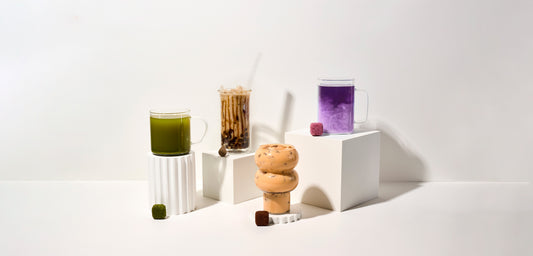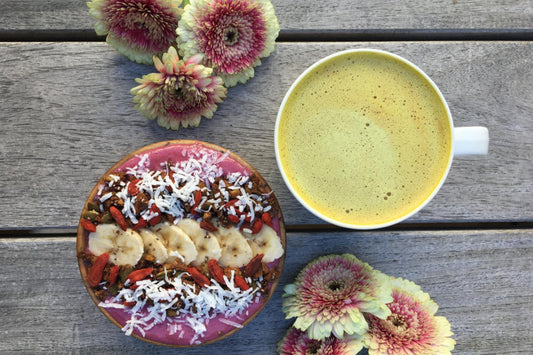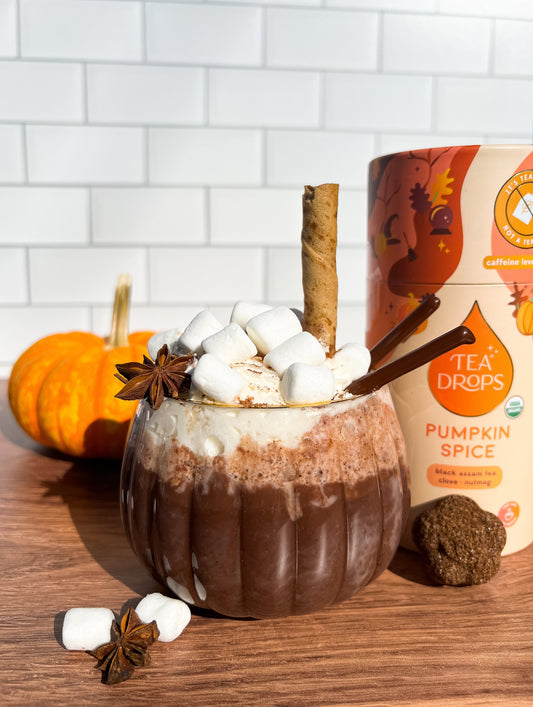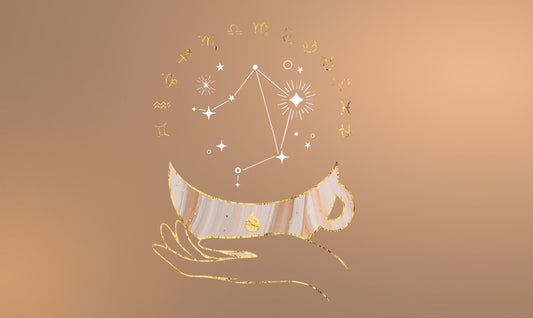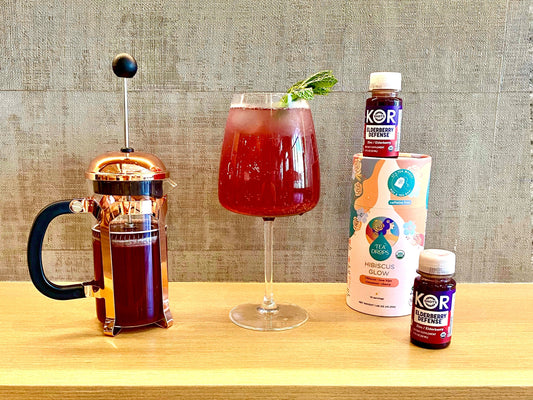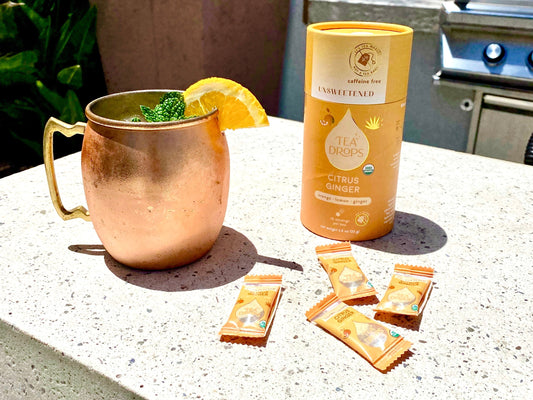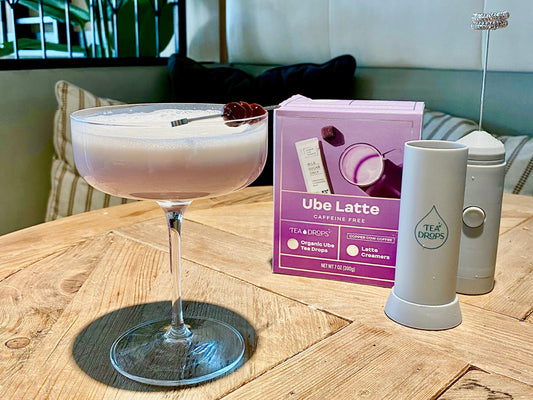
From tight tension to niggling ache or even full-blown pain, headaches can show up unannounced and totally ruin your day. For those who don’t want to pop a pill every time their head starts to bang, herbal tea could be one of those awesome natural remedies to beat over the counter care. There are so many different reasons why a headache could show up. From sinus issues to dehydration, too much wine the night before, or stressful situations – whatever the situation, taking time out to sip a cup of healing tea can help to get you back on track.
There are so many different kinds of herbal tea out there and for centuries these tisanes created from herbs and spices have been used for their healing properties. Whether it’s peppermint for stomach-ache or chamomile for stress and pain relief and sleep, herbal teas bring a dreamy dose of holistic healing and can help cut out all kinds of health problems – including headaches. If you want to know exactly which brew you should turn too when your temples start to feel tight, keep reading to find out which is the best tea for headaches.
How Teas Reduce Headaches

There are so many small things to celebrate about tea. Taking time out to indulge in the mindful meditation of tea making, hydrating your body, sipping compounds and antioxidants that help to relax the muscles, and opening up your sinuses. These are just a few ways in which tea can help the body overcome the symptoms of headaches and migraines. To help paint a clear picture of how tea can help reduce headaches, scan these quick fix points below…
- Reduces inflammation
- Hydrates the body
- Relieves stress and tension
- Relaxes the muscles
- Blocks pain signals
- Contracts or expands blood vessels
- Has aromatherapy properties
Caffeinated Tea Might Induce Headaches
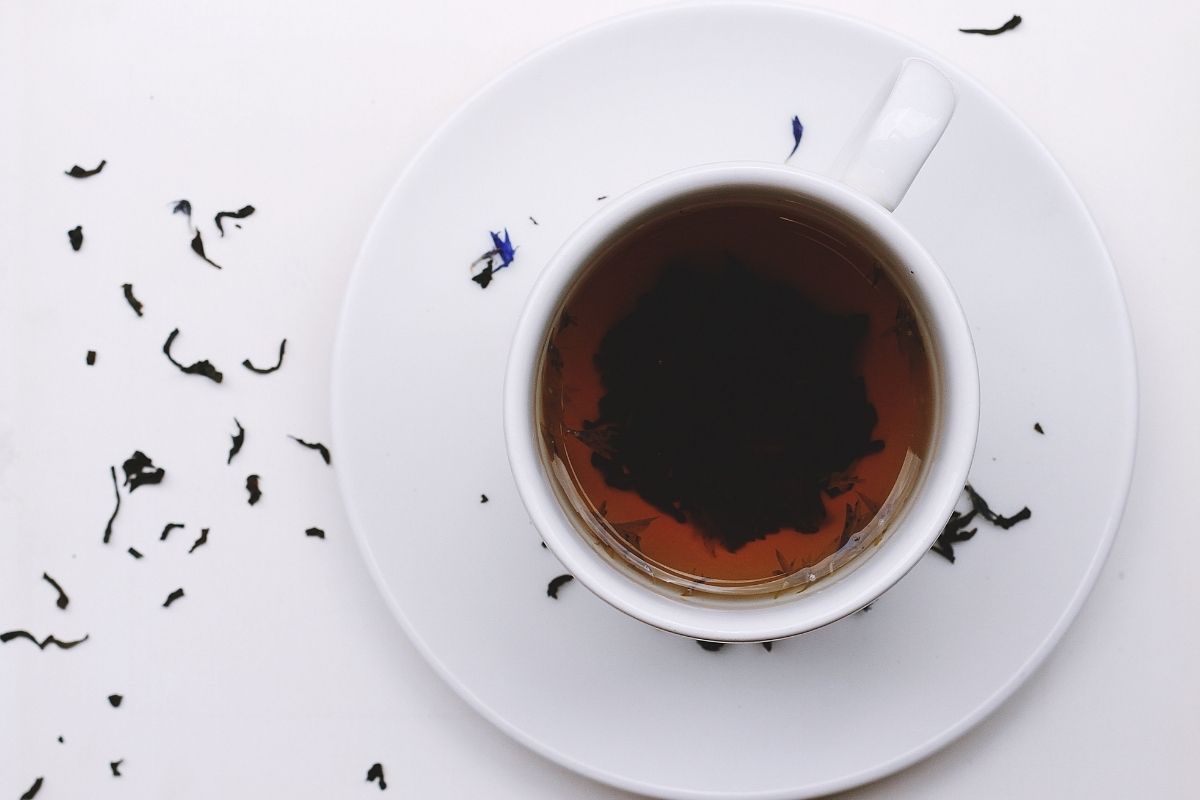
In the fight against headaches, not all teas are born equal. If you are trying to combat a headache with a cup of tea you may want to skip out on caffeinated teas. Caffeinated teas tend to be those ‘true teas’ that are made from the leaves of the camellia sinensis plant. This includes black tea, green tea, and oolong tea too. Caffeine can narrow the blood vessels around the brain. Later these blood vessels can expand again which can cause pressure and pain. Caffeine also often works as a diuretic it can contribute to dehydration. There are tons of benefits that come with teas and tea blends from the camellia sinensis but for dealing with headaches and skipping caffeine, herbal tea could be best.
If you are dealing with a sensitive head or if you are fighting migraine attacks, then you want to turn to herbal tea instead. Herbal tea is caffeine-free, hydrating, and often full of healing goodness. You may also want to pick out low histamine soothing teas too in case your headache stems from sensitivity to pollen or other seasonal allergies.
7 Best Teas for Headaches

Teas that refresh, reinvigorate, and have a rich melody of essential oils and healing compounds are sure to be the best for your head. Brewing up a soothing pot of tea could be just the remedy to put those aches and pains to rest and get you on your feet again. To help combat clusters, aches, flares, and migraines, here are our favorite teas for sorting out headaches.
Chamomile Tea
Easy dreamy chamomile tea may be better known for its stress busting vibes and sweet sleep inducing aroma, but it also works a treat when it comes to headaches too. Reducing tension in the body, encouraging proactive and restorative sleep, and cutting down on fierce pain factors, chamomile has a lot going for it. This study showed that chamomile was especially helpful in decreasing the side effects of migraines such as helping cut out nausea, pain, and light and sound intolerance too only thirty minutes after sipping this sweet floral brew.
Peppermint Tea
Forever refreshing, peppermint tea is a pure treat not just for digestive issues but for headaches too. This cooling and soothing naturally sweet tea is great for headaches that come as part of cold and flu. Peppermint oil is super uplifting and has been found to reduce muscle tension, open nasal passages, and soothe sinus discomfort, and effectively treat pain. The medley of magnesium, potassium, vitamin A, vitamin C, and menthol oils can have a direct impact on tension headaches, helping to lift you out of the fuzz.
Ginger Tea
Better known for being an anti-nausea remedy, tea made from the root of ginger or even ginger powder and ginger spice blends can also help to cure headaches. Full of powerful antioxidants that are known to reduce inflammation, ginger can also calm stress and help eliminate toxins and free radicals that could also be contributing to pain. Anti-inflammatories can work by opening blood vessels and encouraging better circulation, which can stop the pounding feeling in your head. For those with migraines, the combo effect of reducing nausea is an added bonus too.
Feverfew
Another magical migraine remedy, feverfew has a long history of being a herbal remedy for helping heal. There have been lots of studies on feverfew tea and its ability to totally do away with migraines. While the results are mixed there is no doubt that this tea is a dab hand at effectively dealing with and even preventing migraines. It’s believed that feverfew is able to inhibit the release of certain chemical compounds that can trigger headaches and migraines. You can also blend feverfew with lavender for even more health benefits that come with drinking tea as a way of cutting out migraine headaches and getting back to your day.
Willow Bark
Taken from the bark of the willow tree, this kind of woody tea contains a natural ingredient called salicin which is the same active ingredient found in everyday aspirin. This is awesome news for those wanting to fend off any kind of pain without popping a bottle of pills. For centuries, willow bark has been used because of its anti-inflammatory properties. As willow bark is strong it should be avoided by those who are on blood thinners or those who are pregnant.
Lime Tree Tea
Laced with sweet sedative properties, lime tree tea is awesome at cutting through tension headaches and helping the body to let go of stress. Also known as linden tea, this herbal remedy is an excellent anxiety reliever, fabulous at fighting inflammation, and a natural pain reliever too. Studies have shown that the antioxidants found in linden tea have been proven to reduce chronic pain along with fighting free radicals in the body. All these elements are excellent news for headache sufferers who need to boost their arsenal.
Sichuan Lovage
A tried and tested Chinese remedy for cutting out headaches and bringing relief and joy back to your life, Sichuan Lovage is known for boosting circulation. When we tap into healthy circulation our body works better and inflammation and swelling can be reduced. This is also a great tea to sip when suffering from colds and flu as it reduces congestion and soothes a sore throat alongside being an effective remedy for headaches too.
Should You Visit Professionals?

Headaches are never any fun and while we have done our due diligence when it comes to researching which teas could work as a complementary therapy for you, it's not a replacement for help from your healthcare provider. Headaches can be fleeting or they can be reoccurring and long term. If you have been dealing with consistent headaches for a couple of months you should be sure to check in with your medical professional. Home remedies can help headache symptoms but if your pain is severe or connected with other issues then a doctor should be consulted to rule out any underlying conditions.
Wrap Up
The next time you feel your temples start to throb, get boiling water and reach for one of these healing teas to help calm your body and soothe the mind. Staying hydrated, getting good sleep, eating properly, and indulging in simple acts of self-care can deliver a baseline for keeping headaches at bay and nurturing your overall sense of wellness.
What are your favorite types of tea for dealing with migraine symptoms and finding headache relief? Share with us in the comments.
Medical Disclaimer: While we have delved into the research available on the health benefits of these teas, this is for informative purposes only and shouldn’t be taken as medical advice. Those who have any health-related queries should reach out to a medical professional. These statements have not been evaluated by the Food and Drug Administration. This article is not intended to diagnose, treat, cure, or prevent any disease.
